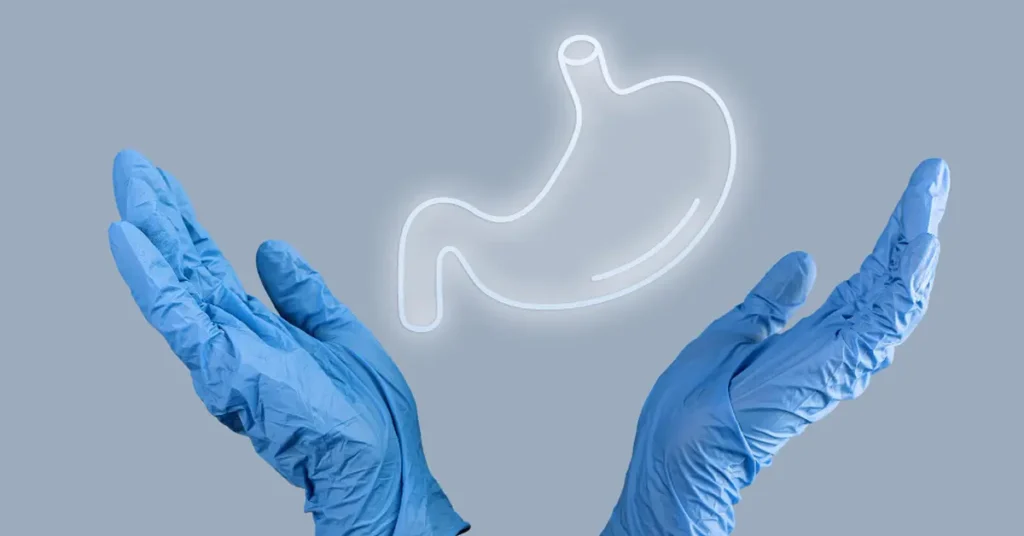The gut microbiome has emerged as a key player in shaping human health, with its influence reaching far beyond digestion. Trillions of bacteria, fungi, viruses, and other microbes inhabit your digestive tract, collectively forming a unique microbial ecosystem that influences immunity, nutrient absorption, mental health, chronic disease risk, and more. Let’s explore details about the Connection Between Gut Microbiome and Overall Health
What is the Gut Microbiome?
The gut microbiome refers to the diverse and dynamic community of microorganisms inhabiting the human digestive tract. These microbes carry out essential functions, such as fermenting dietary fiber, synthesizing vitamins (B1, B9, B12, and K), and supporting the gut lining. Each person’s microbiome is unique, shaped by diet, genetics, environment, medications, and age.
How the Gut Microbiome Supports Health
Digestive Wellness:
Gut bacteria break down complex carbs and fibers, producing short-chain fatty acids (SCFAs) that nourish colon cells and regulate inflammation, reducing risks for IBS, IBD, and colon cancer.
Immune Defense:
Over 70% of the body’s immune system resides in the GI tract. Gut microbes train immune cells, defend against pathogens, and calm inflammation, lowering the risk of autoimmunity and allergies.
Metabolic Health and Weight Management:
Gut flora influence how we absorb calories and metabolize fats and sugars, impacting obesity, diabetes, and metabolic syndrome.
Gut-Brain Axis:
The gut communicates with the brain via nerves, immune signals, and hormones. Imbalances may contribute to stress, anxiety, depression, and even cognitive decline.
Prevention of GI Disorders:
A healthy, diverse microbiome protects against dysbiosis-related GI disorders, including irritable bowel syndrome (IBS), inflammatory bowel disease (IBD), and Clostridioides difficile infection.
Microbiome Testing & Personalized GI Care
We have innovations in GI diagnostics, and stool-based microbiome testing now allows for a deeper assessment of each patient’s microbial balance. Advanced tests, such as GI-MAP®, can identify specific bacteria, parasites, and inflammation markers.
Helping GI specialists at GI Solutions tailor interventions, from targeted probiotics and prebiotics to dietary and medication strategies, for optimal outcomes.
Probiotics, Prebiotics, and Nutrition for Gut Health
Probiotics
Beneficial live microorganisms that support gut flora balance. Evidence suggests that specific strains can assist in managing IBS symptoms, boosting immunity, and maintaining gastrointestinal regularity.
Prebiotics:
Plant fibers (such as inulin, oligofructose, and resistant starches) feed good bacteria and increase microbial diversity.
Personalized Nutrition
Microbiome-directed dietary plans, rich in fiber, fermented foods (like yogurt, kefir, and kimchi), and low in added sugars, can improve digestion, reduce GI symptoms, and restore healthy microbial balance.
Recognizing Signs of Microbiome Imbalance
Common symptoms of dysbiosis include:
- Bloating, gas, irregular bowel movements, frequent diarrhea or constipation
- Unexplained fatigue, poor concentration (“brain fog”), skin issues, and food intolerances
- Recurrence of GI infections or inflammation
Advanced Strategies for Managing GI Health
GI Solutions offers cutting-edge, customized approaches to restore and protect gut health:
- Comprehensive GI and microbiome assessment
- Probiotic and prebiotic therapy based on the latest clinical evidence
- Dietitian-led nutrition counseling for fiber-rich, GI-friendly diets
- Support for chronic conditions like IBS, IBD, SIBO, and gut-liver axis dysfunction
- Utilization of AI and digital tools for ongoing monitoring and personalized care plans
Conclusion
The gut microbiome is at the heart of digestive and overall health. Prioritizing gut health through microbiome testing, evidence-based GI care, individualized probiotics, and nutrition can transform wellness for patients with and without GI conditions.
GI Solutions is committed to delivering advanced, compassionate care, helping every patient thrive from the inside out.

Frequently asked questions
Is the gut microbiome linked to mental health?
Yes, through the gut-brain axis, the microbiome influences mood, anxiety, and cognitive function, making gut health important for mental well-being.
Are antibiotics harmful to the gut microbiome?
While antibiotics can kill harmful bacteria, they also disrupt beneficial microbes. Use antibiotics only when prescribed and consider probiotic support during and after treatment.
Can gut microbiome testing help?
Yes, stool-based tests can assess your microbial balance and identify specific bacteria or pathogens. Tests like GI-MAP® help GI specialists customize treatments with probiotics, diet, or medication.
What are the signs of an unhealthy gut?
Common signs include bloating, gas, constipation or diarrhea, fatigue, brain fog, skin problems, and recurring gut infections.
How can I improve my gut health?
Eating a diet rich in fiber and fermented foods, reducing processed foods, staying hydrated, managing stress, and getting enough sleep can improve your gut microbiome diversity and health.
How does the gut microbiome affect my overall health?
A healthy gut microbiome supports digestion, immune function, metabolic health, and even mental well-being. It helps prevent infections, reduces inflammation, and may lower the risk of chronic diseases like IBS, IBD, diabetes, and heart disease.

